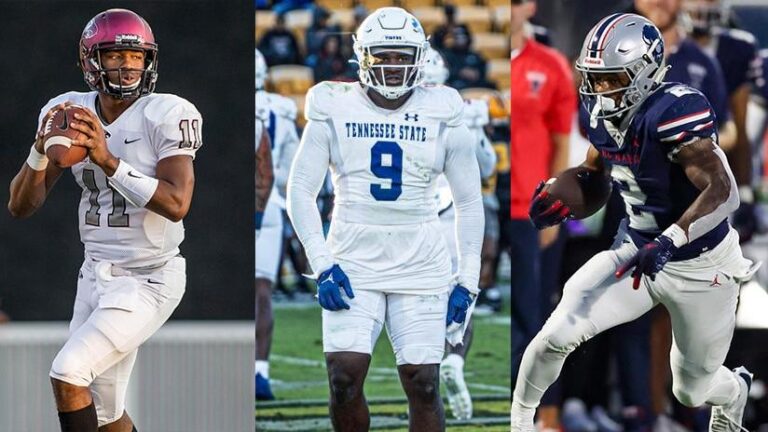Tragic Loss of Former HBCU Football Player Highlights Urgent Urban Gun Violence Crisis
A heartbreaking incident in Houston has claimed the life of a former football athlete from a Historically Black College and University (HBCU), reigniting critical discussions about the pervasive issue of gun violence in urban communities. The 27-year-old, once celebrated for his athletic prowess and leadership on the field, was fatally shot late last week near a bustling entertainment district. This event not only devastates his family, teammates, and fans but also casts a spotlight on the broader challenges faced by athletes and residents in cities grappling with escalating firearm-related incidents.
According to law enforcement, the shooting stemmed from a confrontation, underscoring the unpredictable nature of gun violence that continues to plague many metropolitan areas. In response, community advocates and sports figures alike are calling for comprehensive strategies to address this crisis, emphasizing the need for systemic reforms that protect vulnerable populations and foster safer neighborhoods.
Addressing the Surge in Urban Gun Violence: A Call to Action
The untimely death of this former HBCU athlete has intensified calls for urgent action against the rising tide of gun-related violence affecting young adults in urban settings. Recent data from the Gun Violence Archive reveals that firearm incidents in major U.S. cities have increased by over 15% in the past year alone, highlighting the critical need for targeted interventions.
Advocacy groups are urging policymakers to implement multifaceted approaches, including:
- Community-focused policing: Developing trust-based law enforcement strategies tailored to the unique dynamics of urban neighborhoods.
- Expanded mental health services: Providing accessible counseling and support for at-risk youth and former athletes transitioning out of competitive sports.
- Stricter firearm regulations: Enforcing laws to reduce illegal gun possession and trafficking.
- Sports mentorship programs: Leveraging the influence of athletes to engage youth in positive activities and conflict resolution.
These initiatives aim to create safer environments and offer constructive alternatives to violence for vulnerable communities.
| Issue | Consequences | Recommended Solutions |
|---|---|---|
| Urban Gun Violence | Increased fatalities among young adults | Community policing and educational outreach |
| Support for Former Athletes | Challenges in post-athletic career adjustment | Mentorship and mental health programs |
| Illegal Firearms | Greater access to weapons | Enhanced legislative enforcement |
Strengthening Security Around Houston’s Sports Venues
Following the fatal shooting near a Houston sports facility, local leaders are advocating for reinforced safety protocols at stadiums and surrounding areas. The incident has exposed vulnerabilities during events that attract large crowds, prompting calls for improved security measures to protect attendees and athletes alike.
Proposed enhancements include:
- Deployment of high-resolution surveillance cameras covering stadium exteriors and parking zones.
- Hiring security personnel trained in crowd management and de-escalation techniques.
- Upgrading lighting systems in parking lots and adjacent public spaces to deter criminal activity.
- Launching community watch programs to encourage vigilance and timely reporting of suspicious behavior.
| Security Measure | Anticipated Benefit |
|---|---|
| Increased Police Patrols | Quicker response times and crime deterrence |
| Enhanced Lighting | Lower incidence of nighttime offenses |
| Specialized Security Training | Better conflict resolution and emergency handling |
| Community Engagement Initiatives | Improved neighborhood safety awareness |
Reevaluating Collegiate Athletic Programs and Player Safety Post-Tragedy
This devastating event has prompted HBCUs and other institutions to critically assess their athlete safety protocols and support systems. Ensuring the well-being of student-athletes both on campus and in their personal lives has become a top priority, with many programs now focusing on holistic approaches to player welfare.
Key focus areas include:
- Enhancing security measures on and off campus, specifically designed to protect athletes.
- Expanding access to mental health counseling to address trauma, stress, and other challenges.
- Implementing educational workshops on conflict management and personal safety strategies.
- Strengthening partnerships with local law enforcement to guarantee swift emergency responses.
| Focus Area | Before Incident | Post-Incident Improvements |
|---|---|---|
| Player Safety Programs | Basic measures with limited outreach | Comprehensive safety reviews and enhanced training |
| Mental Health Support | Limited availability and awareness | Increased funding and dedicated counseling staff |
| Security Collaboration | Ad hoc coordination | Formalized agreements with law enforcement agencies |
Policy Recommendations to Safeguard Student Athletes from Violence
To prevent future tragedies involving student athletes, comprehensive policy reforms must address both immediate safety concerns and underlying systemic issues. Institutions should partner closely with law enforcement and community organizations to bolster campus security through measures such as advanced surveillance systems, increased nighttime patrols, and confidential reporting mechanisms for threats.
Additionally, mandatory violence prevention and conflict resolution training tailored to the unique pressures faced by athletes should be integrated into athletic programs. Mental health services must be embedded within athletic departments to facilitate early identification and intervention for at-risk individuals.
| Policy Initiative | Primary Focus | Projected Impact |
|---|---|---|
| Community-Law Enforcement Collaboration | Security coordination | Improved emergency response |
| Violence Prevention Education | Training and awareness | Reduction in conflict incidents |
| Mental Health Integration | Support and early intervention | Decreased risk of crisis escalation |
| Anonymous Reporting Platforms | Threat detection | Increased reporting and prevention |
Final Thoughts
The tragic shooting of a former HBCU football player in Houston serves as a sobering reminder of the persistent threat that gun violence poses to athletes and urban communities alike. As investigations proceed, the sports world grieves the loss of a promising young life and rallies for meaningful change. This incident underscores the urgent necessity for coordinated efforts to enhance safety, support mental health, and implement effective violence prevention strategies nationwide. Ongoing coverage will continue to shed light on developments and community responses to this critical issue.

